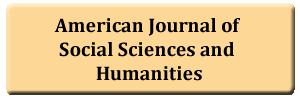Impacts of COVID 19 on Policy of Tertiary Education in Nigeria: The Case of Professional Diploma in Education Students of Federal College of Education
DOI:
https://doi.org/10.20448/804.6.1.28.42Keywords:
COVID 19, FCET gombe, Impact, Professional diploma in education, Students, Tertiary education.Abstract
COVID 19 pandemic has strategically overwhelmed all the global sectors of human endeavours since its first appearance in December 2019. The Virus shattered and paralysed all socioeconomic activities for several months. One of the areas that is seriously affected globally is the education sector. Nigeria is most affected just like other world countries economically and socio-culturally. The Nigerian Policy on Education has been widely criticised for its failure to make adequate provisions for an unforeseen contingency like pandemic periods. Thus, when COVID 19 emerged in Nigeria, the education sector emerges arguably as the most affected. Schools were totally shut down for more than two terms or nearly two semesters for tertiary institutions. The study examined the Nigerian education policy and the impacts of COVID 19 on tertiary institutions. The study used both primary and secondary sources of data. The data obtained were discussed using manual SPSS. The study discovered that the obsolete educational policies subjected tertiary institutions to the mercy of COVID 19 protocols which left the schools closed for many months leading to crisis of confidence from the students and a total loss of a whole session in most cases. The study recommends among others that the Nigerian Policy in Education should be immediately revisited to cater for future pandemic preparations that will avoid closure of schools or learning. This can be achieved through the adoption of e-learning and provision of modern tools of learning in public schools.



